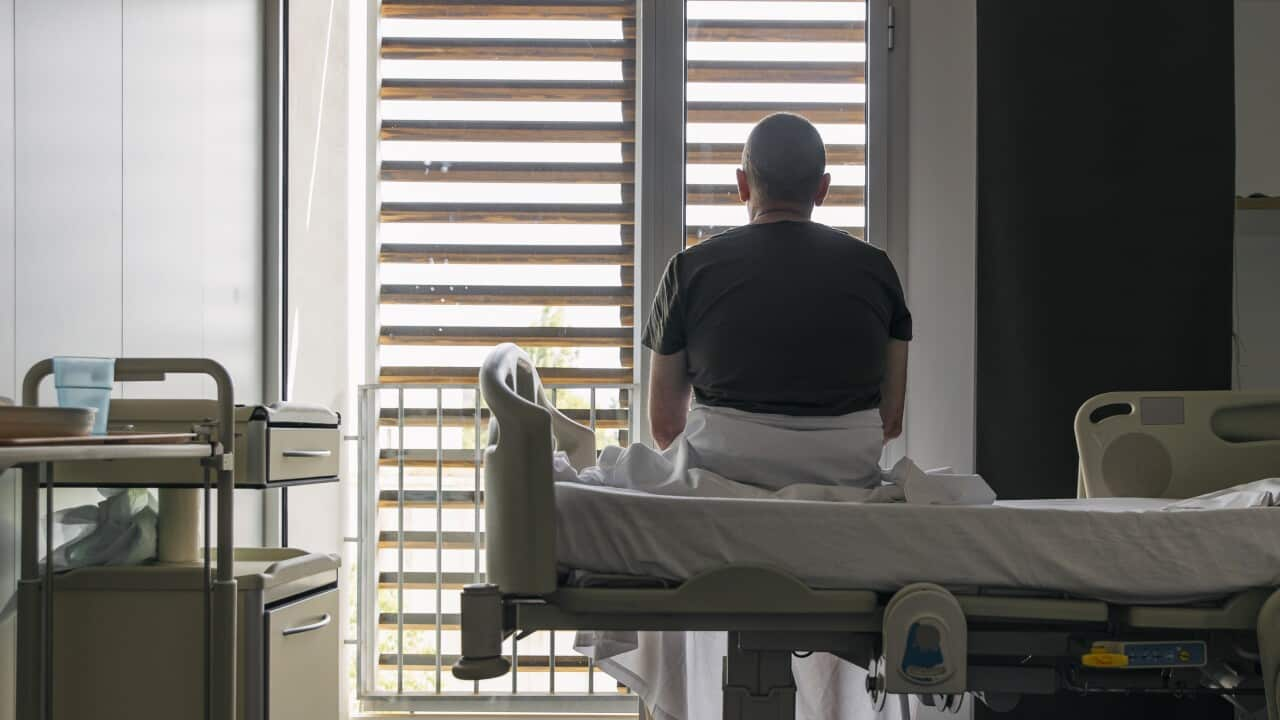Key Points
- The Australian Medical Association says Australia’s health system is failing people with poor mental health.
- The AMA found the number of patients with poor mental health has risen and mental health beds has decreased.
- The AMA said the report shows systemic issues in the public hospital system are calling for urgent reform and funding.
This article contains references to mental health issues.
Cathy Ngo began to experience postnatal depression and anxiety after the birth of her first son Hendrick six years ago.
It took a year for her to seek professional help.
"It was a struggle when he was born, there were mixed feelings of joy (and) excitement, but also anxiety and depression as well," she said.
"I was a little bit in denial of some of the feelings I was experiencing and all these emotions, I thought it was just me being sleep deprived and adjusting to a new identity but it was absolutely more than that," she said.
Ms Ngo says navigating her Vietnamese heritage and cultural expectations added to the pressure she was feeling.
"There's a lot of family expectations, a lot of pressures, and customs to uphold, which I wasn't fully aware of until I had my son," she said.
"It was a really difficult transition period going from being a career woman to suddenly you've got this baby, and you've got to look after it, and uphold all these traditions," she said.
Ms Ngo is not alone in struggling with her mental health.

Cathy Ngo experienced postnatal depression and anxiety after the birth of her first son six years ago. Source: SBS News
The AMA's Public Hospital Report Card - Mental Health Edition showed a drop in the number of available public hospital beds for mental health patients, as rising numbers of more severely ill patients present to emergency departments.
Now, the AMA is calling for urgent attention to the mental health care system and public hospitals.
AMA Emergency Medicine Representative Sarah Whitelaw described the situation as a crisis.
"Mental health care for people in emergency departments has been at crisis level unfortunately for at least the last five years, so this is not a new problem for us," she said.
"What we are seeing is it's worse now than it's ever been, it's been steadily getting worse for decades, and the impact of COVID has made things much harder."
According to the AMA, the number of patients presenting with poor mental health has almost doubled to 121 per 10,000 Australians, up from 69 in 2004.
The report card also said there has been an almost 40 per cent decrease in the number of mental health beds in public hospitals per capita; from 45.5 to 27.5 beds per 100,000 population between 1992 and 2020.
The data also found a rising reliance on ambulances to reach emergency departments, with 52.2 per cent arriving by ambulance in the 2020–21 year compared with all other conditions, where one in three people arrive by ambulance.
On arrival, patients needing admission are waiting an average of 12 hours in Queensland to 28 hours in Tasmania before they are admitted to hospital for treatment.
Dr Whitelaw said emergency departments are seeing more patients with mental health problems, more frequently arriving by ambulance, that are increasingly severely ill and needing intensive mental health care and admission to hospital.
“This is causing real anguish ... imagine someone severely distressed and ill waiting 28 hours, more than entire day in an emergency department before being admitted to the mental health unit bed that they really need,” Dr Whitelaw said.
"Every single state and territory of Australia, in all regions, from metro to regional and remote and rural areas, we are seeing really significant problems and a group of patients who are very vulnerable in terms of our mental health problems be more disadvantaged than any other group. It's got to stop."
The AMA is calling for a reform of hospital funding, more mental health beds and staffing, the modernisation of Medicare to support GP-led collaborative primary care, and an increase in mental health community service capacity.
The association is also seeking an urgent plan to increase the mental health workforce, future mental health care policy guided by professionals, and funding and strategies to address the situation in public hospitals.
Readers seeking support with mental health can contact Beyond Blue on 1300 22 4636. More information is available at . supports people from culturally and linguistically diverse backgrounds.












